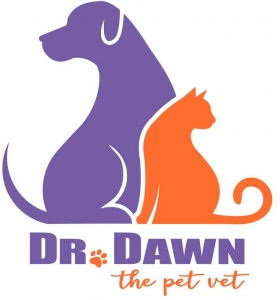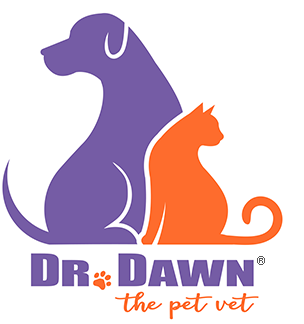You may have heard about a new virus detected in dogs, Circovirus. Until recently, it was only known to infect pigs and birds. It was first identified in 2012, but resurfaced in April, 2013 in California in a dog seen for vomiting and bloody diarrhea. The virus was suspected, but ruled out as the primary cause in the deaths of four Ohio dogs this summer. Its role in the deaths of six dogs in Michigan is still under investigation.
If anyone remembers the early scary days of parvovirus detection, and influenza virus, these cases may ring an alarming bell. Before these diseases have been adequately understood, and before vaccines are developed, I think it is important to be kept abreast of what the experts know. What they do know is that the signs can progress to hemorrhaging, shock and death. Equally important is what we do not know, which is how the virus spreads. More common pathways involve direct contact with an infected dog, her vomit, or fecal matter. Other possible methods include contact with respiratory secretions, shared equipment such as bedding, toys, food bowls, grooming equipment, or people who have touched the infected dog. Until more is understood, prevention would include common sense precautions, such as avoiding contact with ill dogs or their stools, washing hands frequently, and always picking up after their dog. And, best not to panic. Not all infected dogs become ill, and in the small number of cases seen, it has been shown that prompt treatment increased the chance of a good recovery. Owners are urged to contact their veterinarian if their dog is vomiting or has diarrhea. Even if it turns out to be something minor, which is more likely, you will have gained peace of mind by erring on the side of caution.
For more info about circovirus in dogs, see www.avma.org
Probiotics for pups:
Probiotics are a type of “good bacteria” that can be beneficial to gut health. While studies in dogs are limited, those relating to human probiotic use are plentiful. Research indicates that they may improve a person’s gastrointestinal health, reduce the risk of allergies, and help prevent recurring urinary tract infections. To gain maximum benefit, it is recommended to select a product specifically formulated for dogs and those that contain live, viable organisms in sufficient numbers. I often recommend giving probiotics with antibiotics. In particular, those medications that can cause stomach upset are best combined with probiotics, to avoid the potential side effects. Ask your vet…
Does your dog hack, wheeze, or cough with no medical explanation? Are you a smoker? If you answered yes, your dog could be suffering from exposure to second-hand smoke. “Studies have demonstrated substantial changes in the lung tissue of dogs exposed to secondhand smoke”. Those changes range from pulmonary fibrosis, or scarring of the lung tissue, to precancerous and even cancerous lesions.
Signs of exposure include:
– dry hacking
– progressive, chronic cough
– increased frequency and severity of symptoms in dogs with bronchitis
-persistent, year-round symptoms, rather than seasonal, in dogs suffering from allergic lung disease
Many veterinarians believe that the signs seen in dogs could improve if their owners would quit smoking. Other health dangers dogs face include the risk of ingestion of toxic tobacco products by licking ashtrays or digging in the trash. Signs of tobacco ingestion and toxicity include: vomiting, diarrhea, drooling, increased salivation and trembling. Nicotine toxicosis signs include excitement, constricted pupils, odd behavior, seizures, and even death. Important to note: cigarette butts are “nicotine rich” in that they contain 25% of the nicotine found in cigarettes.
While many people thing their pets are immune to the dangers of secondhand smoke, they are not because they breathe the same air that we do.
Hope you found this helpful.
Dr. Dawn
Please share and subscribe here







